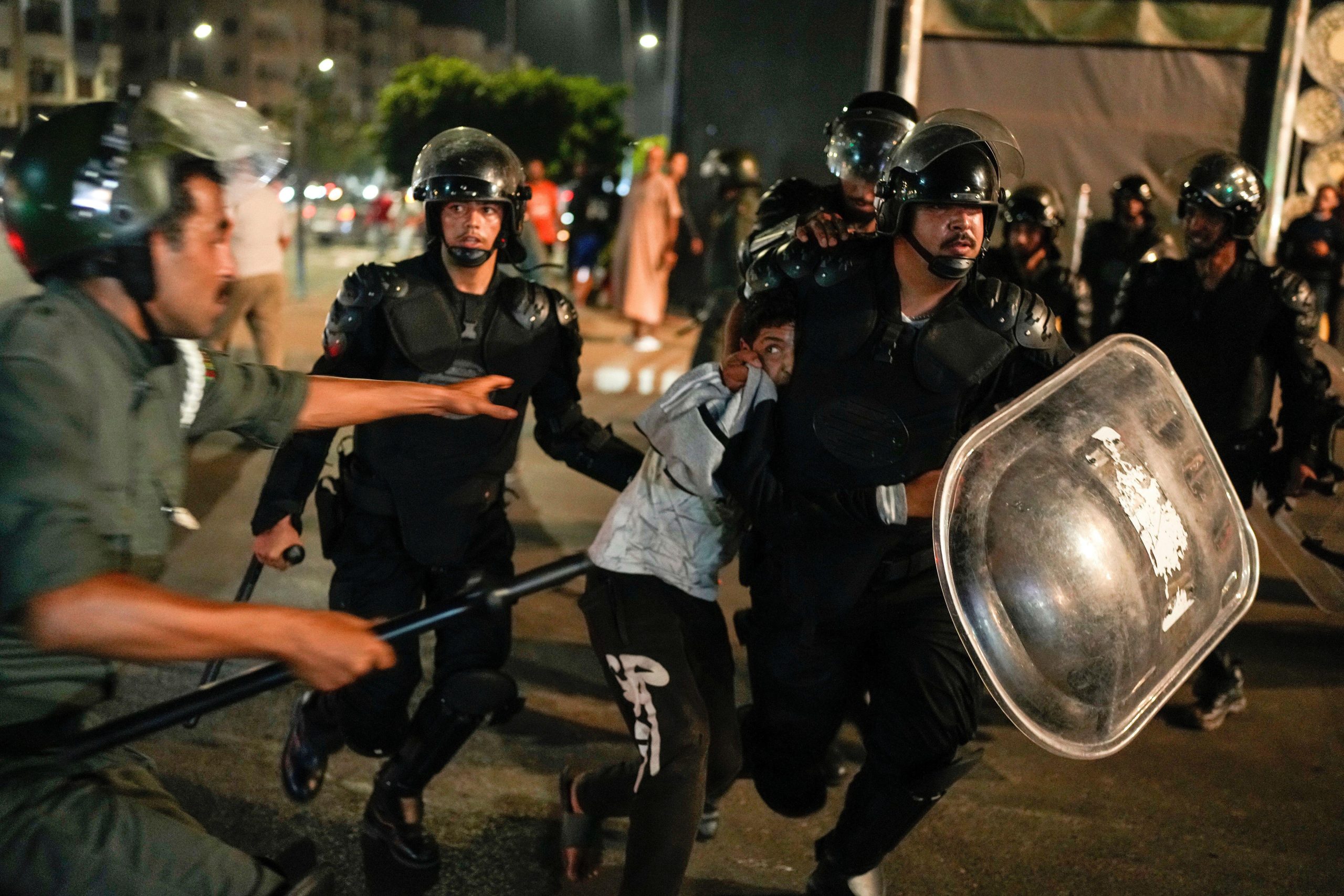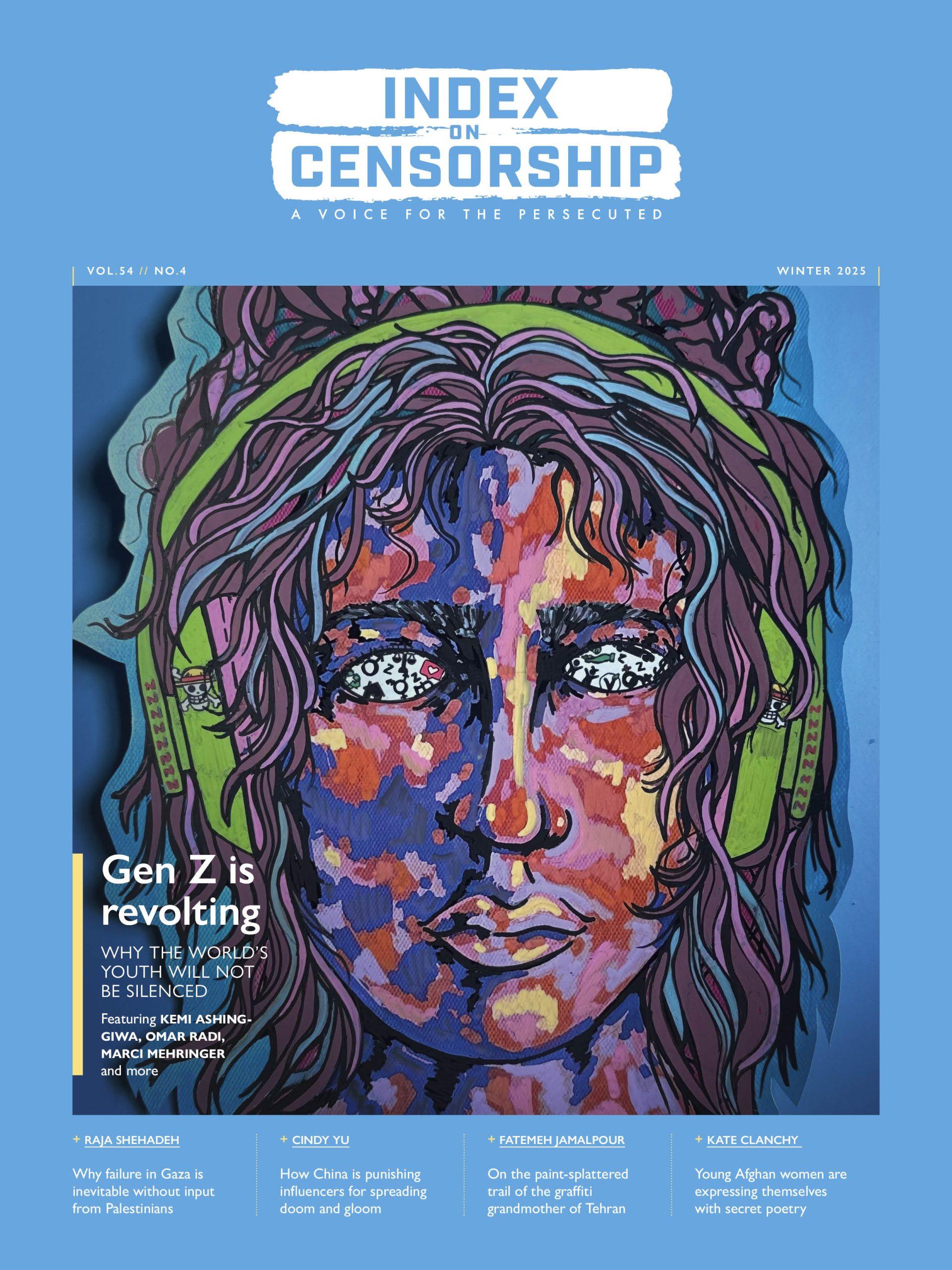It started out as a routine night on the Egyptian parliamentary campaign trail, and ended as a clear lesson in the methods that a police state uses to control, intimidate and generally confuse journalists.
Along with several colleagues, I traveled to Shubra Al-Kheima — a grim industrial Cairo suburb — on Sunday night at the invitation of Dr Mohamed Beltagui, a Muslim Brotherhood-affiliated parliamentarian, seeking to defend his seat.
The Brotherhood is illegal in Egypt and officially banned from forming a political party. Nevertheless in 2005 parliamentary elections, Beltagui and 87 other Brotherhood members won seats running as nominal independents — instantly establishing the Brotherhood as the country largest opposition bloc.
This time around the government seems determined to cut the Islamist group down to size. Hundreds of Brotherhood supporters have been arrested in the past week, often after police moved in to break up Brotherhood rallies.
At first there was no sign of such a crackdown on Sunday night. My colleagues and I walked along with Beltagui’s sign-carrying supporters, recording their chants and watching the candidate give several brief campaign speeches over a portable loudspeaker.
After about two hours, I got into a taxi along with Ursula Lindsey, a correspondent for the BBC radio program The World, and prepared to head home. Suddenly the taxi was stopped by a crowd of plain-clothed men, obviously officers of Egypt’s ubiquitous State Security Investigations force.
They removed us from the taxi, and demanded our IDs and credentials. They aggressively asked us where was our tasreeh (permission) to work as journalists in this neighborhood. I explained several times that my press card issued by the Ministry of Information WAS my permission. It became very quickly apparent that our official state press cards were worth almost nothing.
What followed was a half-hour of surreal tedium — standing on a darkened street with 10 plain-clothed officers who apparently thought they were protecting the country from us. The officers kept explaining that they were “following orders” but refused to explain just what those orders were.
There were several comments implying that as foreign journalists, we were hopelessly biased against the Egyptian government and only gave attention to opposition groups like the Muslim Brotherhood. At one point, one of them laughed at said, “Welcome to Shubra al-Kheima. Now don’t ever come back. Shubra al-Kheima is hazardous to your health.”
Finally I was handed a mobile phone. One the other end was a man identifying himself only as “General Ahmed.” He came off as the nicest guy in the world, and told me I was welcome to return to this neighborhood any time I wanted. But there was a catch. “To prevent problems like this in the future,” he told me, it would be best if I first stopped by the local police station to inform them of my presence. That way, he said, they could arrange a police escort, “for your protection.”
Fortunately, I restrained the urge to point out that the only protection I needed was from his men.
Finally we were allowed to leave. In the end, it was more annoying than intimidating, more bureaucratic than bullying. But it was a clear window into the type of petty harassment the regime routinely employs in order to shrink the local political playing field and limit the activities of foreign journalists.
On Monday morning came a surreal post-script. The government held a press conference to discuss their electoral preparations. The head of the state-sponsored National Council for Human Rights issued several assurances that this electoral round would be clean, transparent and free of the violations that have marred previous votes.
I mentioned that several journalists, including myself, were detained the previous night simply for doing our jobs. The responses were genuinely shocking.
Several government officials told me that it was my fault for being there. If I want to interview a candidate, I was told, I should meet them in their office. To walk alongside a campaign rally constitutes “political activity,” they said — which apparently makes me and other journalists fair game in the eyes of the state.




